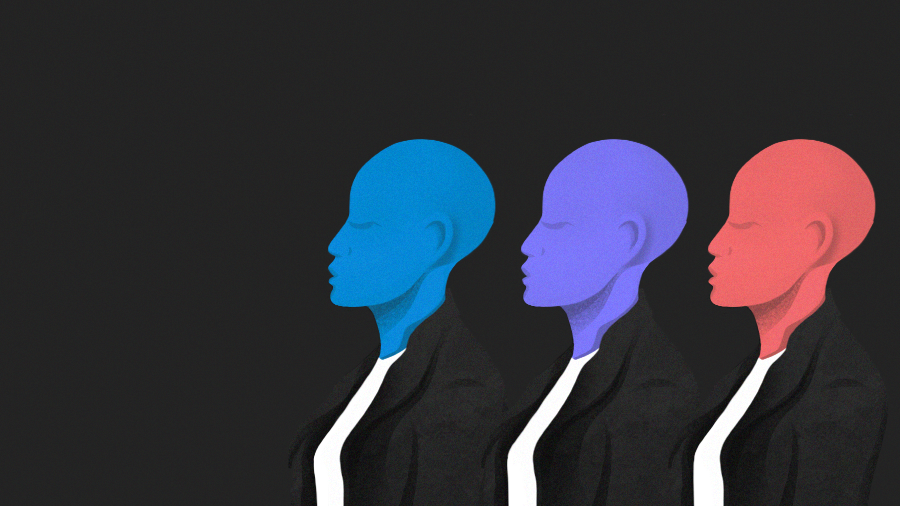Recent uproar over America’s history of social injustice has ignited several initiatives aimed at providing inclusion and equity for Black founders.
Subscribe to the Crunchbase Daily
One of the newest initiatives is addressing the lack of access and resources to becoming a venture capitalist. Last week, BLCK VC, Operator Collective, Salesforce Ventures 1 and Berkeley Haas School of Business announced the Black Venture Institute, an intensive, curriculum-based program designed to give Black operators and executives the education, experience and connections needed to pursue careers in venture capital and investing.
Putting this in context
For a broader look at what’s happening in the VC world, we turn to a 2019 Harlem Capital study that showed only 200 diverse founders had raised $1 million or more ever. Meanwhile, just 1 percent of venture-backed startups have a Black founder, while less than 3 percent of venture capital funds employ Black or minority professionals.
In fact, Crunchbase conducted its own Diversity Spotlight Report in August, which looked at both Black- and Latinx-founded startups. As we reported, Black and Latinx founders raised just 2.6 percent of the total VC funding for U.S. startups, despite together accounting for 32 percent of the U.S. population.
Led by the Black Lives Matter movement, we are now seeing more new or targeted venture funds, pitch competitions–such as one for founders in the beauty industry led by Black Girl Ventures and Rare Beauty Brands–and platforms, including the 100kPledge, a public social contract and tracker for professionals and organizations committing to Black communities’ economic empowerment through hiring, investment and donations.
Where the Black Venture Institute fits in
The goal of the Black Venture Institute is to increase the number of Black check-writers by five times in three years. It will be bringing in cohorts of Black operators looking to become angel and venture investors. They will be mentored by a group including Bill Gurley, general partner at Benchmark, Kobie Fuller, partner at Upfront Venture Partners, and Monique Woodard, partner at Cake Ventures.
Jackson Cummings, an investor with Salesforce Ventures, and Brian Hollins, a founding board member of BLCK VC, are among the group of the institute’s creators and spoke to Crunchbase News about the institute and its future.
What is the mission of the Black Venture Institute?

Cummings: The homogenous nature of venture capital is a real problem. It is excluding potential investors and ignoring a huge set of entrepreneurs. There are only 75 Black check-writers, and this new program will provide access and education to others.
Jackson, your Medium blog underscores the point that “Venture capital is an industry reliant upon access—access to the right network, access to the right knowledge, access to the right opportunity.” Traditionally, the access comes from a warm introduction between VCs or other relationships. Do you think it’s time for VCs to embrace cold outreach?
Cummings: The venture capital network is inherently a network-based business and has been for decades. In terms of cold outreach, BLCK VC is extending that network into this population and bridging the gaps where there wasn’t a strong tie.
Hollins: I don’t think VCs are afraid of cold intros. It is part of the introduction that investors, like Mark Cuban, among others, talk about. What we want to do is equip operators to make those cold outreaches: what to look for, how to spend time on more effective outreaches and the conversational communication points that are important in VC verbiage, to help our operators get comfortable.
Brian, aside from access, where else is there a disconnect?

Hollins: I started as a founding board member of BLCK VC in 2018. The DNA of BLCK VC is getting people into the venture capital ecosystem. Much had been done to fill the top of the funnel. However, over the past 12 months, we saw that Black operators wanted to be writing angel checks and venture capital checks, but didn’t want to join firms, be an associate or take on the role someone new might have to do within the VC ecosystem. The top-down version is to bring people in that have the relationships and the capital so that we can start seeing deal flow.
Where do you see the Black Venture Institute’s trajectory going?
Hollins: We want to give Black operators leverage and resources to help get decks in front of investors and get founders in front of Y Combinator or 500 Startups or colleagues in a way that they didn’t in the past. This is just the beginning of a long journey. Three hundred grads will be on a two- to three-year journey. I hope that each cohort becomes a champion and sounding board for the next 50 operators, that it gets stronger each year and more opportunities come out of it.
Cummings: Because venture capital is based on networks and an insular network of people you know, we can’t fall back into the same cycles that have delivered low representation of Black founders and operators. We need the culture shift, like we are seeing with organizations like Black Tech Women, to help bridge that gap. This year has shed a spotlight on how we felt as an industry and a nation, and is bringing these to light. We are hoping to create equity and representation in an industry that has traditionally lacked it. Now that the Institute is launched, we want to have it live on for years to come.
Illustration: Dom Guzman

Stay up to date with recent funding rounds, acquisitions, and more with the Crunchbase Daily.


![Illustration of a hand depositing a coin in a bot. AI funding [Dom Guzman]](https://news.crunchbase.com/wp-content/uploads/Generic-ai-funding-470x352.jpg)
![Illustration of Earth in a crystal ball. [Dom Guzman]](https://news.crunchbase.com/wp-content/uploads/Quarterly-globalfeature-470x352.jpg)

![Image of multiuse agentic AI/robot North America quarterly[Dom Guzman]](https://news.crunchbase.com/wp-content/uploads/year-of-agentic-ai-quarterly-north-america-470x352.jpg)
![Illustration of a guy watering plants with a blocked hose - Global [Dom Guzman]](https://news.crunchbase.com/wp-content/uploads/quarterly-global-3-300x168.jpg)
67.1K Followers